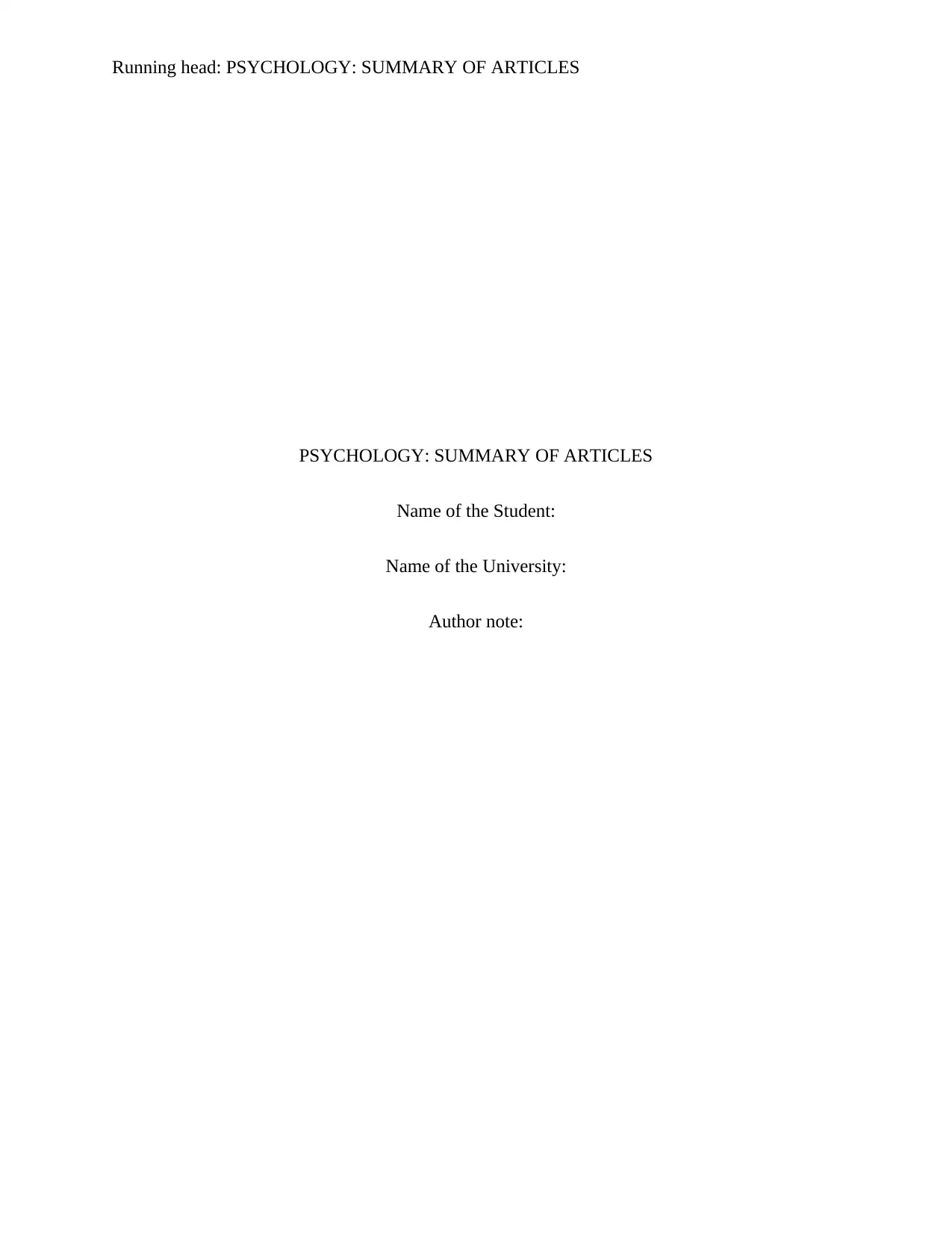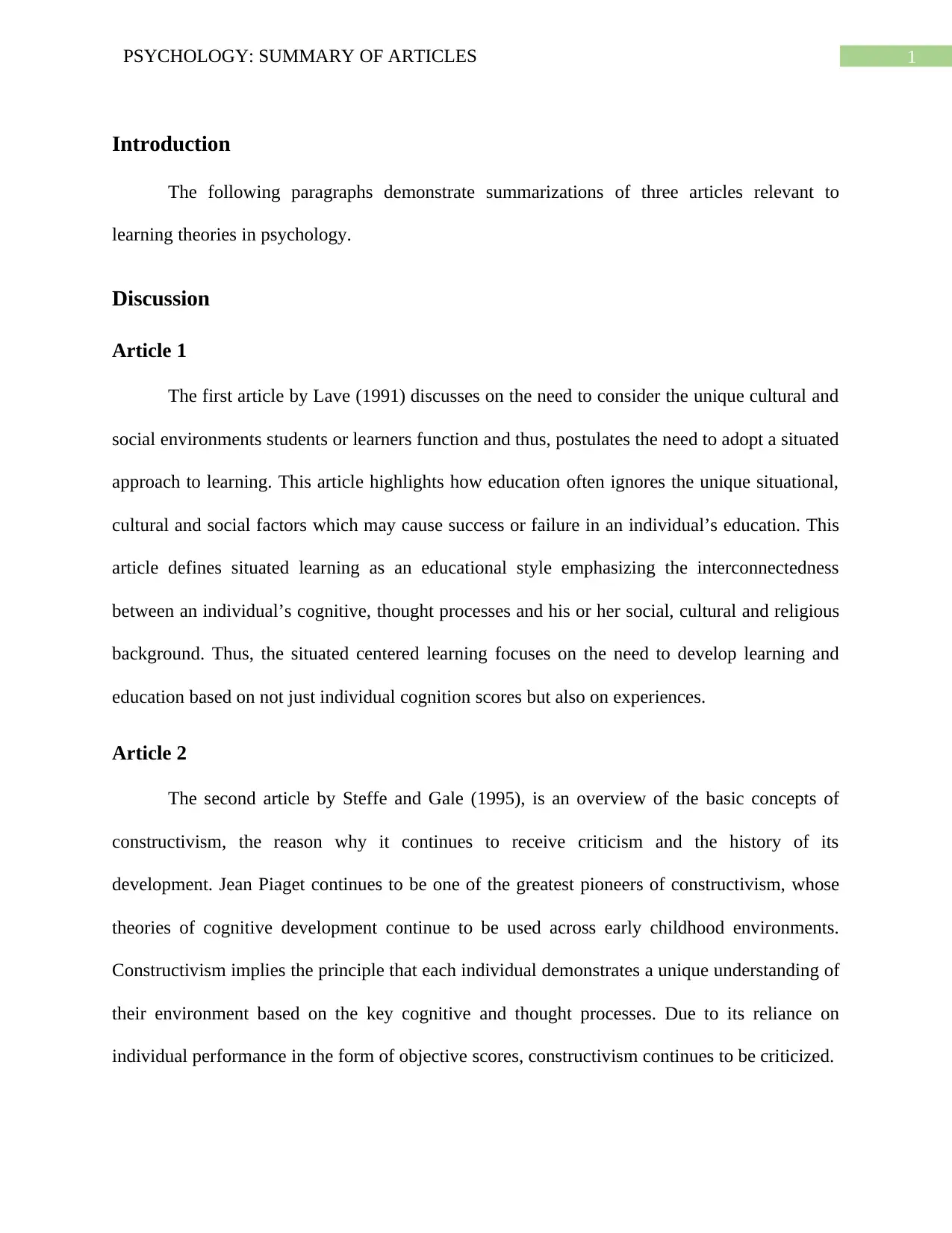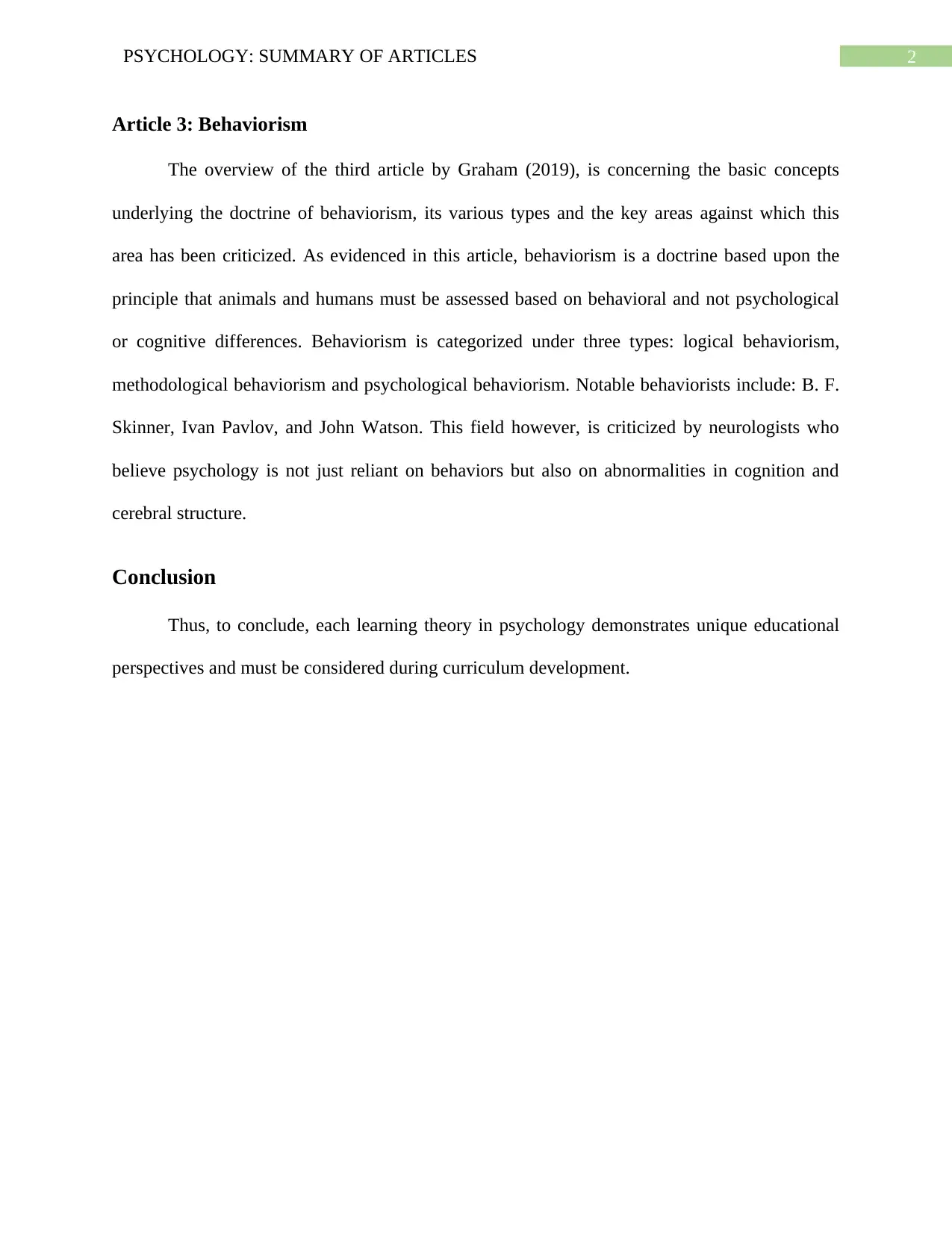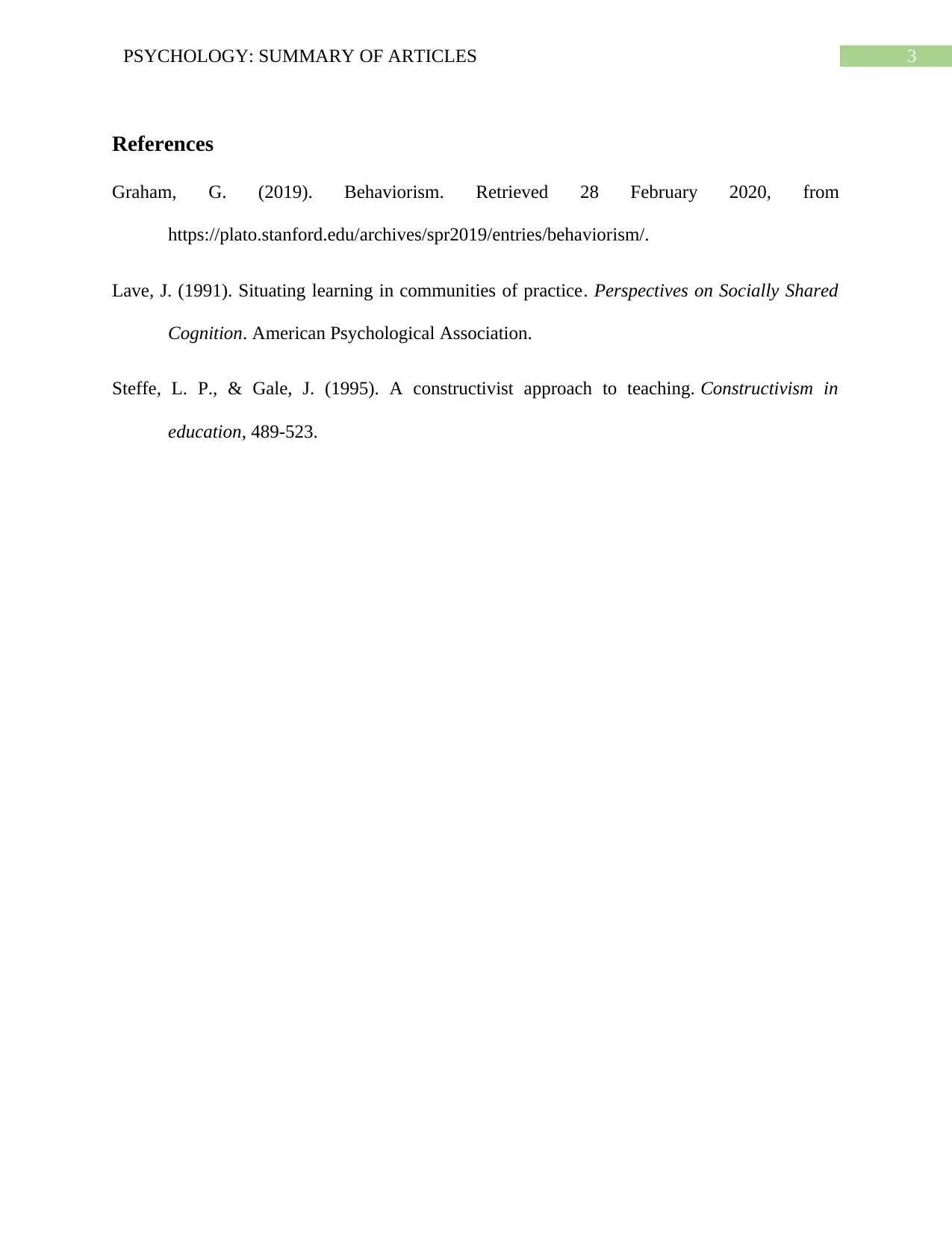Psychology Assignment: Summary of Learning Theories Articles
VerifiedAdded on 2022/08/11
|4
|515
|25
Report
AI Summary
This report summarizes three articles related to learning theories in psychology. The first article by Lave (1991) discusses situated learning, emphasizing the importance of cultural and social environments in education. The second article by Steffe and Gale (1995) provides an overview of constructivism, including its history and criticisms, with a focus on Jean Piaget's contributions to cognitive development. The third article by Graham (2019) focuses on behaviorism, outlining its core principles, types, and critiques, particularly from neurologists who emphasize the role of cognition. The conclusion highlights the unique perspectives each theory offers for curriculum development.
1 out of 4






![[object Object]](/_next/static/media/star-bottom.7253800d.svg)